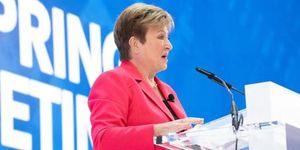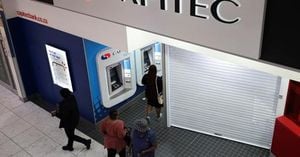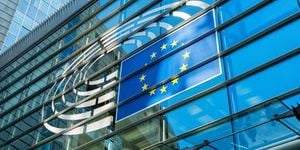Former Philippine President Rodrigo Duterte was arrested on March 11, 2025, at Manila airport immediately upon his arrival from Hong Kong. This detention followed the issuance of an arrest warrant by the International Criminal Court (ICC), which is investigating his alleged crimes against humanity connected to his notorious war on drugs.
Duterte, who served as president from 2016 until 2022, has become infamous for his aggressive anti-drug campaign. Reports indicate over 6,000 deaths linked to police operations during this period. While the official figures report this number, independent organizations suggest the actual count may be significantly higher, possibly ranging from 12,000 to 30,000 extrajudicial killings—many innocent civilians.
According to the Presidential Office of the Philippines, "This morning, Interpol Manila received the official copy of the arrest warrant from the ICC. At the moment, he [Duterte] is in custody," highlighting the seriousness with which international bodies are treating his actions.
Upon his arrival, the 79-year-old Duterte was immediately taken under custody. Despite previously mocking the ICC and insisting he would not be arrested, he had stated, "I am ready to go to jail," showing the complexity of his stance against international law. This arrest marks the culmination of years of scrutiny over his administration’s human rights record.
The war on drugs was central to Duterte's 2016 election campaign, which he promised would rid the Philippines of drug-related issues. His rhetoric often included calls for severe measures against traffickers and addicts. Notably, he has claimed to have personally killed three drug dealers, reflecting the brutal nature of his stance.
Historically, the Philippines withdrew from the Rome Statute, the ICC's founding treaty, back in 2019 on Duterte's orders, arguing it unlawfully infringed on the sovereignty of the nation. Despite this withdrawal, the ICC maintains jurisdiction over crimes allegedly committed before this exit, including numerous killings conducted during Duterte's regime.
The ICC began examining the situation back in September 2021, launching official investigations aimed at addressing the systematic issues surrounding Duterte’s policies. Beginning operations were stalled when Philippine authorities asserted they were reviewing previous cases related to anti-drug operations, but this effort did not conclude, and investigations resumed as of July 2023 professional engagement with international agencies was established.
Duterte's response to the international criticism and legal proceedings has been combative, often dismissing the claims of rights abuses as sensationalist or politically motivated attacks from his opponents. By publicly declaring he would not order police to kill drug dealers, referring instead to self-defense, Duterte's narrative weaved complexity around the accountability for the violence perpetrated under his watch.
Upon arrest, the complexity of Duterte's persona as both a populist leader and international fugitive became clear. His former lawyers have characterized the arrest as politically motivated, claiming it was illegal, raising questions about the intersection of law, politics, and the role of international judicial bodies.
The ramifications of this arrest could resonate throughout the Philippines politically and socially, as current President Ferdinand Marcos Jr.’s administration contends with the legacy of Duterte's policies. Marcos Jr. had campaigned on restoring order and stability, but Duterte's criminal legacy stands heavy over the current political atmosphere.
Now, with Duterte under the authority of the ICC, the world watches as the Philippines navigates the scrutiny of the international community, complicity of leadership, and the affordability of justice against the backdrop of domestic policies previously viewed through the lens of sovereign fortitude.
This chapter of the Philippines' history is laden with contention, reflecting broader concerns about governance, human rights, and the continuing struggles for justice within the nation. Whether this arrest leads to substantive legal repercussions for Duterte or changes the political equation of the Philippines remains to be seen as the country embarks on this new and challenging judicial path.



